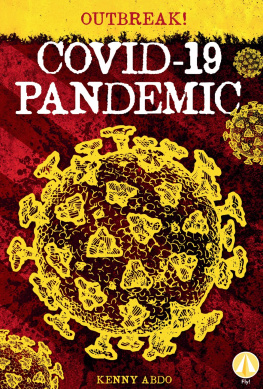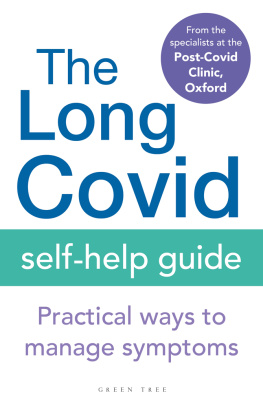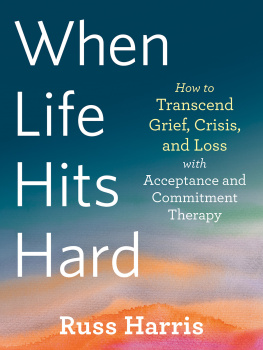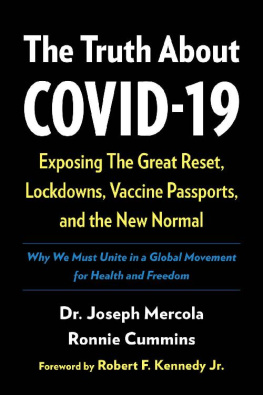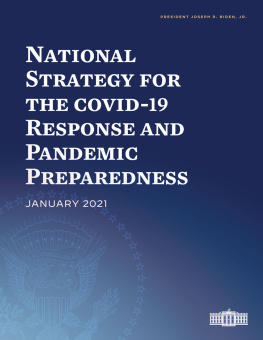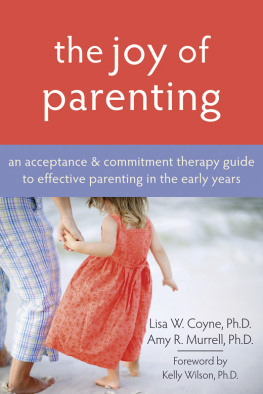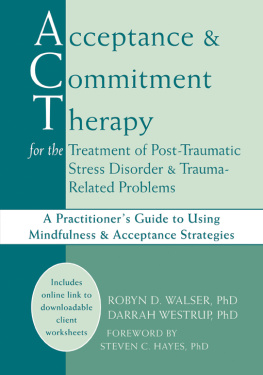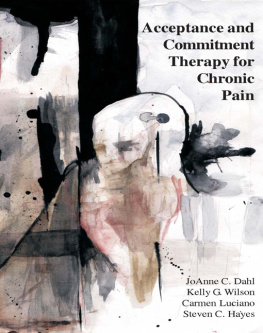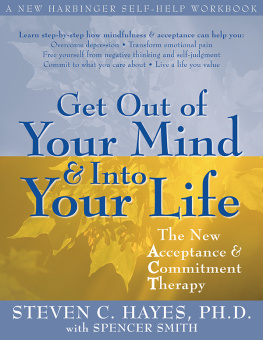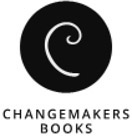Transform your life, transform our world. Changemakers Books publishes books for people who seek to become positive, powerful agents of change. These books inform, inspire, and provide practical wisdom and skills to empower us to write the next chapter of humanitys future.
www.changemakers-books.com
The Resilience Series
The Resilience Series is a collaborative effort by the authors of Changemakers Books in response to the 2020 coronavirus pandemic. Each concise volume offers expert advice and practical exercises for mastering specific skills and abilities. Our intention is that by strengthening your resilience, you can better survive and even thrive in a time of crisis.
www.resiliencebooks.com
Adapt and Plan for the New Abnormal in the COVID-19 Coronavirus Pandemic
Gleb Tsipursky
Aging with Vision, Hope and Courage in a Time of Crisis
John C. Robinson
Connecting with Nature in a Time of Crisis
Melanie Choukas-Bradley
Going Within in a Time of Crisis
P. T. Mistlberger
Grow Stronger in a Time of Crisis
Linda Ferguson
Handling Anxiety in a Time of Crisis
George Hoffman
Navigating Loss in a Time of Crisis
Jules De Vitto
The Life-Saving Skill of Story
Michelle Auerbach
Virtual Teams Holding the Center When You Cant Meet Face-to-Face
Carlos Valdes-Dapena
Virtually Speaking Communicating at a Distance
Tim Ward and Teresa Erickson
Current Bestsellers from Changemakers Books
Pro Truth
A Practical Plan for Putting Truth Back into Politics
Gleb Tsipursky and Tim Ward
How can we turn back the tide of post-truth politics, fake news, and misinformation that is damaging our democracy? In the lead up to the 2020 US Presidential Election, Pro Truth provides the answers.
An Antidote to Violence
Evaluating the Evidence
Barry Spivack and Patricia Anne Saunders
Its widely accepted that Transcendental Meditation can create peace for the individual, but can it create peace in society as a whole? And if it can, what could possibly be the mechanism?
Finding Solace at Theodore Roosevelt Island
Melanie Choukas-Bradley
A woman seeks solace on an urban island paradise in Washington D.C. through 201617, and the shock of the Trump election.
the bottom
a theopoetic of the streets
Charles Lattimore Howard
An exploration of homelessness fusing theology, jazz-verse and intimate storytelling into a challenging, raw and beautiful tale.
The Soul of Activism
A Spirituality for Social Change
Shmuly Yanklowitz
A unique examination of the power of interfaith spirituality to fuel the fires of progressive activism.
Future Consciousness
The Path to Purposeful Evolution
Thomas Lombardo
An empowering evolutionary vision of wisdom and the human mind to guide us in creating a positive future.
Preparing for a World that Doesnt Exist Yet
Rick Smyre and Neil Richardson
This book is about an emerging Second Enlightenment and the capacities you will need to achieve success in this new, fast-evolving world.
When life kicks you, let it kick you forward.
Kay Yow
Were All in This Together
As I write these words, the whole world is still in the grip of COVID-19living with illness, fear, and uncertainty. For millions, there has been untold pain, loss, and suffering. The pandemic has caused major life changes on so many levels, compromising our physical, mental, social, familial, and economic health. The burdens are widespread and persistent from acute illness, long haul illness, unemployment, isolation, separation, quarantine, caretaking, poverty, overwork, grief, interpersonal friction, reduced opportunities, divorce, financial crises, economic instability, and the loss of social support. This list and the suffering go on and on.
Practically speaking, we have a tough road to navigate moving forward and rebuilding our lives. However, if weve learned anything from the pandemic, its that when individuals approach adversity wisely, we are all elevated. This begs the question, how do we face our own individual challenges with resilience? As it turns out, ACT was developed specifically to answer this question. It can help you take control of the things over which you have some influence.
If the pandemic in general or the COVID-19 virus specifically has turned your life upside down, you may have found yourself putting everything on hold until its over, until youre feeling better, until things are back to normal. Its natural to think this way. But what if theres not a normal to return to? With ACT you can navigate this uncharted territory, improve the quality of your life, and lead a richer, more vital, and more meaningful life despite the chaos, pain, illness, or uncertainty the pandemic has caused. If each of us can do this, the broadening effect of the ACT approach gains power and helps us transform how we experience pain and suffering.
People who are living in turmoil caused by the pandemic need ACT because it was designed exactly for situations over which we have little or no control.
Its Called ACT for a Reason
ACT was designed to help you move forward and live your life to the best of your ability right now, this very moment, despite the fallout of the pandemicpainful and devastating as it may be. At its core, ACT is about dealing with human suffering. More specifically, its about creating a different relationship with whatever pain and difficulties you have. Rather than continuously struggling to avoid or vanquish your pain, ACT will help you co-exist with it while you take action to lead a fulfilling life no matter what your circumstances are.
As you may already intuitively know, the worst struggles we experience do not come from challenging situations or events. Instead, the greatest difficulties in our lives come from our attempts to avoid or escape discomfort, both physical and emotional. This is called experiential avoidance, and its a natural part of our survival instinct. Unfortunately, it can lead to maladaptive and dysfunctional behavior, causing more problems than it prevents (Hayes et al, 2012). When we become so focused on avoiding pain, we end up not actually living our lives at all but expending our energy trying to be pain-free. This simply isnt realistic or possible.
A classic example is the alcoholic who drinks to avoid difficult emotions. Simply choosing to experience pain would be much less destructive than the havoc and damage wrought by excessive drinking and avoidance. Or maybe you know the kind of worker who expends so much energy pretending to be productive that it would be easier to do the actual job (and far less alienating and damaging in the long run). Of course, you dont have to be dependent on alcohol or avoid your job responsibilities to be excessively avoidant. We try to escape pain in countless ways. We watch too much TV, we stay in bad relationships, and we engage excessively with technology to avoid our feelings, put off purposeful action, and sidestep the discomforts of real human contact. We let our fluctuating emotions make our decisions, we keep others at a distance with our anger or irritability, and we become stingy with our talents for fear of embarrassment.
The Advent of ACT: ACT has been over 30 years in the making and is considered part of the third wave of behavioral therapies (Hayes et al, 2012). Its grounded in an extremely well-researched model called Relational Frame Theory, which focuses on how our minds form relations and use symbols and language to make connections in our mental processes. This is a remarkably adaptive human skill that can sometimes get us stuck in negative feedback loops. ACT is also part of a larger movement of psychotherapeutic approaches called Contextual Behaviorism (Hayes et al, 2013), specifically Functional Contextualism. Simply put, this is about doing what works (what is functional), when and where it works (in context). Functional Contextual approaches refuse to judge or categorize behavior outside the context in which the behavior occurs and without understanding the function of the behavior (Biglan and Hayes, 1996).


